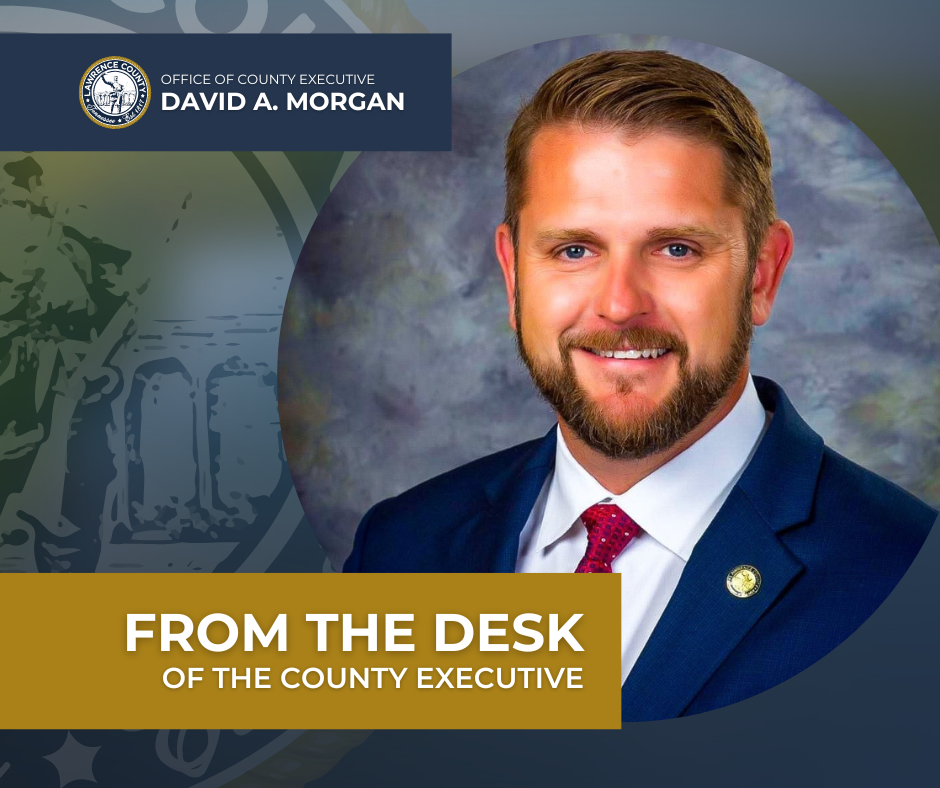During my campaign for this office, I was warned that issues surrounding solid waste disposal would present some of my biggest challenges.
That’s because garbage is a problem everywhere. No one wants a landfill near their home. Disposal anywhere is expensive, difficult, and calls for endless monitoring. Many waste materials require special treatment.
Thankfully, the systems that deal with Lawrence County’s solid waste were in place long before I took office and they are working. But garbage isn’t an issue you solve and forget about. It demands we always look ahead so it doesn’t become a problem.

I feel our next step is to establish convenience centers. Giles County has four that accept household waste and recyclables, located at its Ag Center on Elkton Pike, and the Bodenham, Richland, and Minor Hill communities. They are staffed, fenced, and have established hours of operation. I toured them last week and didn’t see a speck of garbage out of place.
My goal is to build convenience centers in north and south Lawrence County. Giles County’s were built primarily with grants and we will work aggressively to secure grant funding for ours.
Speaking of grants and solid waste, we have been approved for a Tennessee Department of Environment & Conservation grant for 80% of the cost for a 320GC Caterpillar track hoe, and a truck and trailer to haul it. These are expensive items – the total cost is $455,532 – so Commissioners will be asked to approve a 20% match of $91,000.
This grant comes from TDEC’s Tire Environmental Act Program, so the track hoe is equipped with a hydraulic thumb that can pick up items like tires. It will be used to get more tires packed in the trailer our nearest tire recycler, Liberty, picks up for a fee. With the truck and trailer, it can be taken to remote locations to clean up illegal dumps. It will do these tasks instead of employees, who can easily get hurt in the process.
Our convenience centers would also accept recyclables. I know everyone has missed the drop-off points at school campuses, but school officials no longer wanted the traffic they produced due to student safety concerns. Most of the buildings are in ill repair and would not survive a move. Building new ones elsewhere would be an expensive proposition, since specific grant funds paid for the originals.
Litter grant funds were used to pay annual rewards to schools that collected the most recyclables, and I’m sorry that program is no longer an option. The money is being channeled into more recycling education programs, including operation of Curby the Recycling Robot, who was originally purchased with a grant.
In other solid waste news, the city of Lawrenceburg-owned demolition dump at 38 Adkins Lane is now open for contractors and others who have demolition debris. Lawrenceburg and Lawrence County are partners in the garbage business, so debris from any part of the county can be taken there.
Until scales are operational at the demolition dump, however, loads of construction debris first have to go to the transfer station on Baler Drive for weighing and paying. The cost for disposal is $46.50 a ton, or a minimum charge of $25. When loads can be weighed and paid at the demolition dump – in about two weeks – only checks or cards will be accepted.
Securing state permits for the demolition dump was a very long, involved process, and I thank Mayor Blake Lay, city council members, and Solid Waste Director Gary Wayne Hyde for the tenacity it required. This project is a perfect example of why we have to think ahead about solid waste because solutions aren’t easy to come by.
Thankfully, any worries about demolition disposal will now be left to our great-grandchildren. This first “cell” at the site is projected to hold 20-25 years’ worth of waste and three more of equal size are already permitted. When you’re in the solid waste business, that’s the kind of math you like to see.


